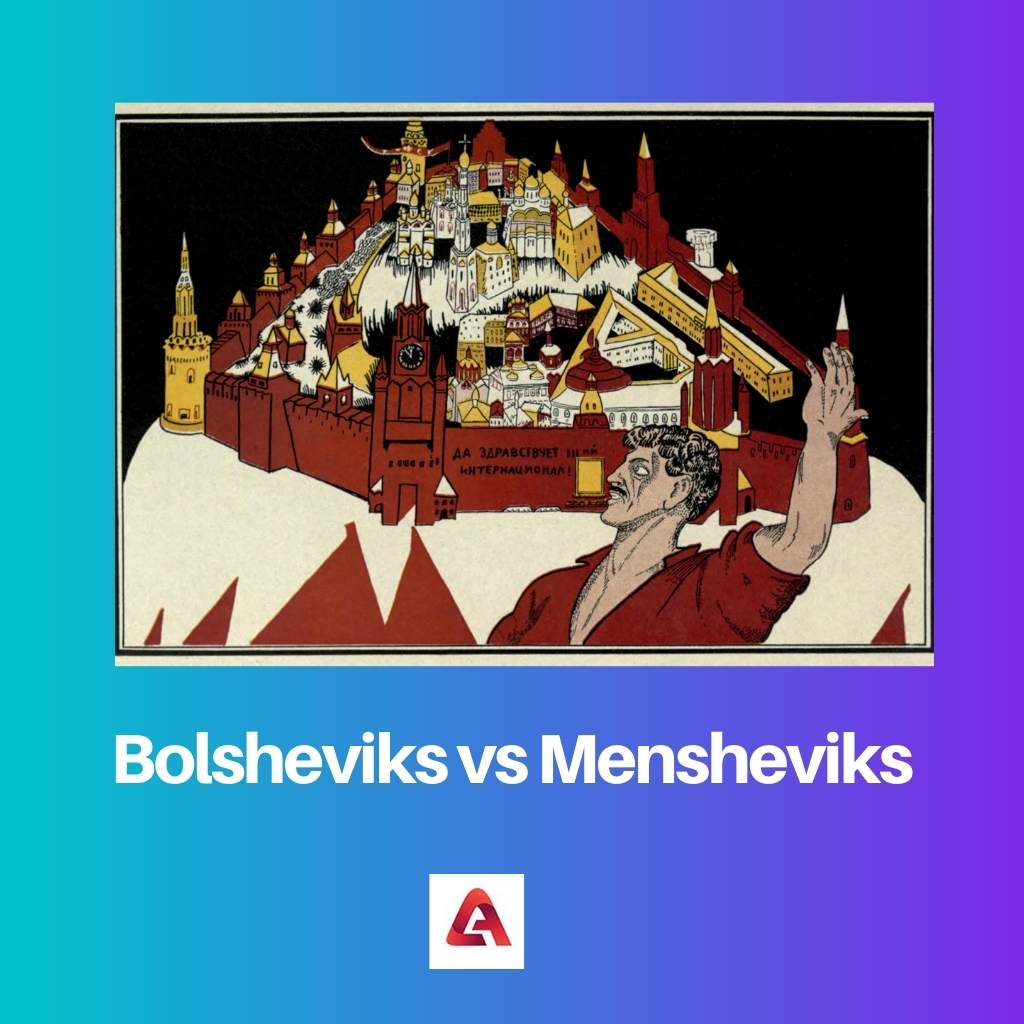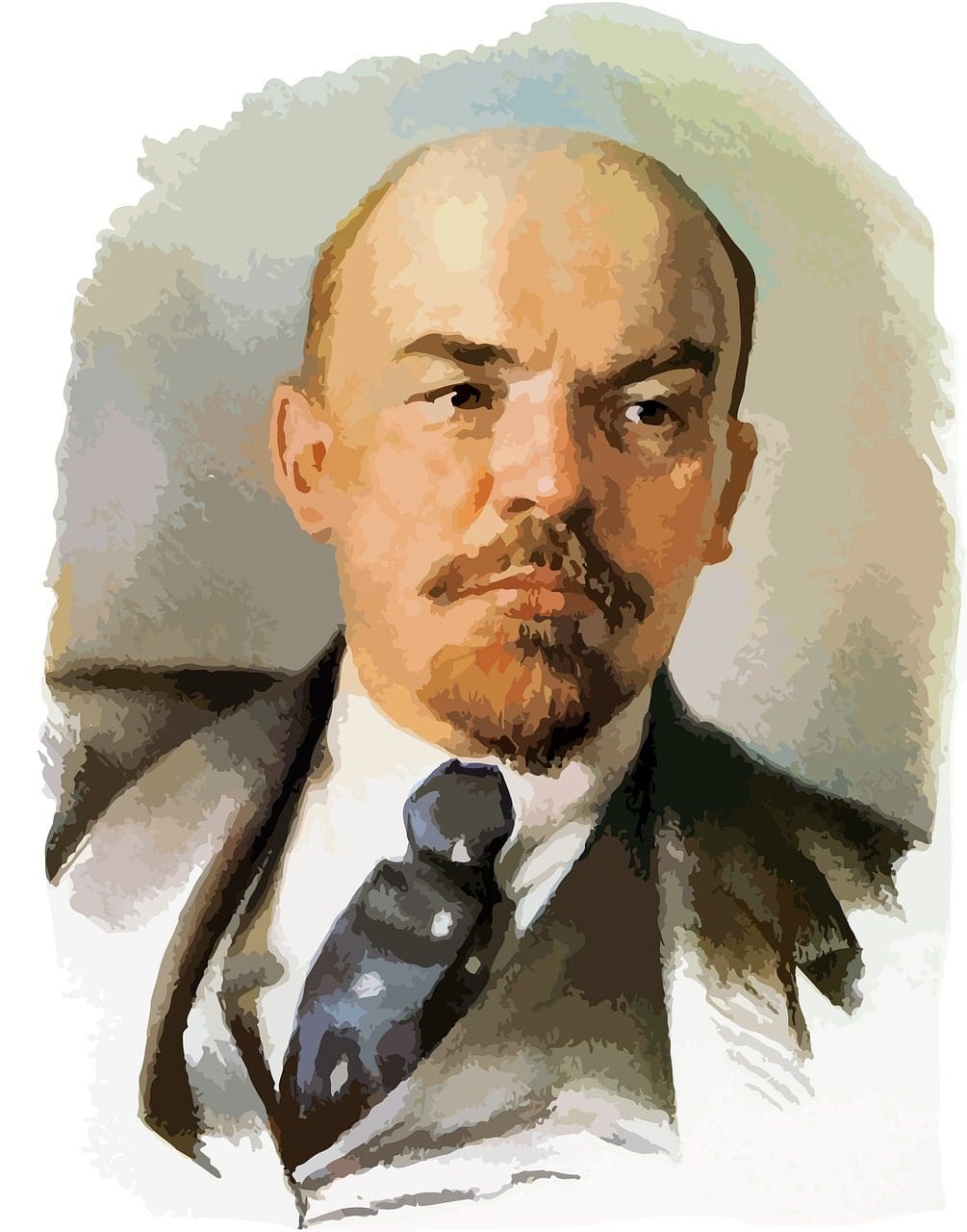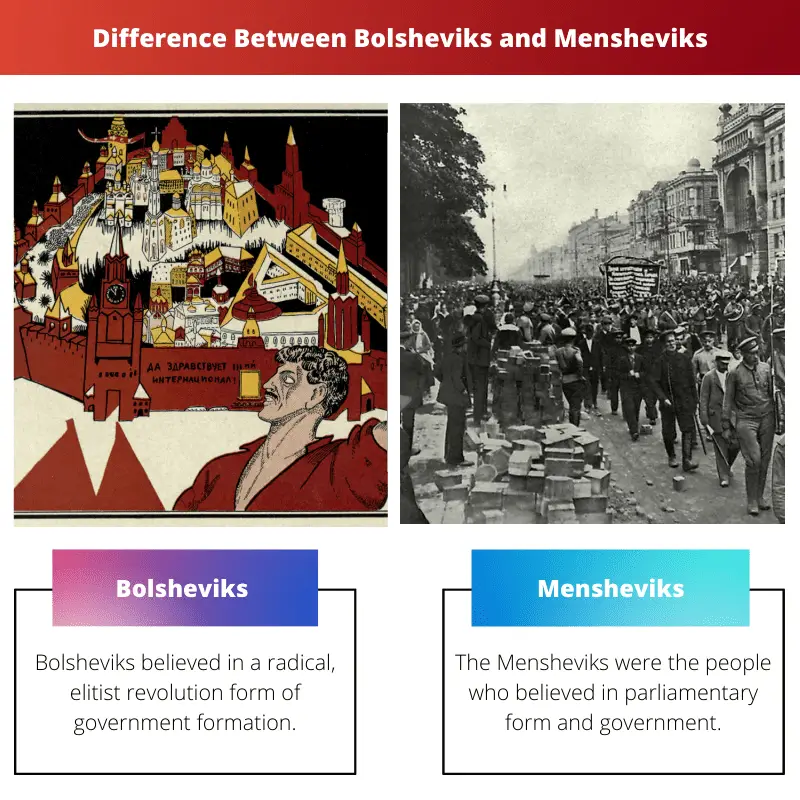In the early 1900s, in tsarist Russia, a social democrat workers party was created, which was later involved in the French Revolution in 1917.
The party later split into two factions, one being the minority faction and the other one being the majority faction. The majority faction was called Bolsheviks, and the minority faction was called the Mensheviks.
In the years followed by the formation of the groups, naming these criteria proved to be a misnomer. They were Russian factions with different principles, ideologies, and beliefs.
Key Takeaways
- Bolsheviks believed in a violent revolution to overthrow the government and establish a socialist state.
- Mensheviks believed in a peaceful, democratic transition to socialism.
- Bolsheviks eventually gained power and formed the Soviet Union, while Mensheviks became a minority faction.
Bolsheviks vs Mensheviks
Bolsheviks means “member of the majority”, while Mensheviks means “member of the minority”. Unlike the Mensheviks, Bolsheviks weren’t willing to work with middle class for their revolutionary aims. Bolsheviks drew less public attention and support for their inclusive ideas compared to Mensheviks.

The Bolsheviks were a community under the Marxist Russian Social Democratic Labor Party, or RSDLP, comprised of the majority of socialists and was under the leadership of Vladimir Lenin.
The Bolsheviks had a democratic central government having most of the professional revolutionaries. It was very selective with the party members and was not open to all.
Mensheviks were a small community under the Russian Revolutionary Movement and were guided under the leadership of Julius Martov.
The Mensheviks believed in an open democratic government, a party open for all and where people’s votes were counted. The Mensheviks believed in going ahead one step after one step.
Comparison Table
| Parameters of Comparison | Bolsheviks | Mensheviks |
|---|---|---|
| Etymology | It comes from a Russian word that means majority member’. | It comes from a Russian word that means minority member’. |
| Party | Marxist Russian Social Democratic Labor Party or RSDLP | Russian Revolutionary Movement |
| Beliefs | They believed in a highly centralized government comprising revolutionary ideologies. | They believed in a democratic form of government in which public opinion matters. |
| Works | They did not work alongside middle-class people. | They worked with Bourgeoisie and also the middle-class people. |
| Publicity | Did not gain much attention from the public. | They drew a lot of public attention due to their ideologies. |
| Thoughts | They believed that Russia could move from a communist society to an absolute monarchy directly. | They believed in going ahead one step after one step to make the country a communist one. |
What are Bolsheviks?
The word Bolsheviks comes from a Russian word meaning ‘majority’. Bolsheviks believed in a radical, elitist revolution form of government formation.
They came to power during the Russian revolution (October phase) in 1917.it is said that the Bolsheviks founded the Russian soviet federative socialist republic. It later on became the chief constituent of the soviet union in 1922.
The Bolsheviks were a community that comprised the majority of socialists and was under the leadership of Vladimir Lenin.
The community worked with the aim of revolution. They wanted a disciplined party to control the members and determine who could enter the government.
It was not open to all but had a selective procedure for it. They aimed to make the party such a party that would encourage revolution.
They did not want to work for middle-class people. Bolsheviks were one of the first to start the Russian revolution, and they also believed that Russia could move from a communist society to an absolute monarchy directly.
The Bolsheviks significantly impacted the Russian history of Russia, and the bolshevik practices are referred to as Bolshevism.

What are Mensheviks?
The word Menshevik comes from a Russian word that means ‘minority’. The Mensheviks were the people who believed in parliamentary form and government.
They also collaborated with the Bourgeoisie (comprised of industrialists and capitalists) and the middle-class people to form a more flexible government. Julius Martov held the centre f the community and was also the head of the community.
Mensheviks were a small community guided under the leadership of Julius Martov. The community’s people believed there could be a gradual change and a parliamentary government (similar to Britain and France) could be established.
The Mensheviks favoured a party open to all systems, and the people could work within a proper plan and management.
The Mensheviks believed in going ahead one step after one step. They did not take up the idea of revolution and thought to bring about a change by inducing democracy.
They were more optimistic about their ideologies regarding the management of the government.
Main Differences Between Bolsheviks and Mensheviks
- Bolsheviks were a part of the Marxist Russian Social Democratic Labor Party or RSDLP, while the Mensheviks were a fraction of the people in the Russian Revolutionary Movement in 1904.
- Bolsheviks emerged from a Russian word that meant majority, while Mensheviks emerged from a Russian word that meant minority.
- Bolsheviks did not help the middle-class people, while Mensheviks worked in collaboration with the middle-class people.
- Bolsheviks wanted a centralized, disciplined party consisting of people with their revolutionary ideology, while the Mensheviks wanted a democratic party.
- Bolsheviks had professional revolutionaries in their party, and not everyone was allowed to join them. Mensheviks allowed an open to all party where everyone was allowed to join the party.
- Bolsheviks used violence, while Mensheviks did not.
- Bolsheviks believed that their centralised party could control trade unions and other organizations. In contrast, the Mensheviks believed that the presence of their democratic party in these organizations was enough for their management.





